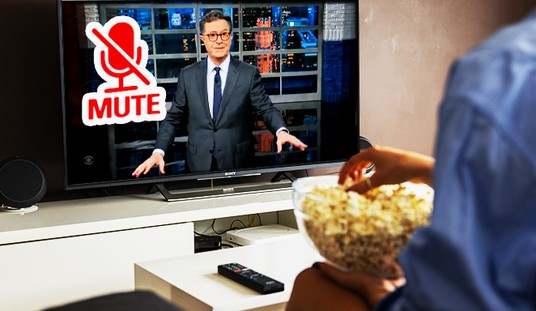
The need for wokeness to be applied to all forms of entertainment is growing.
The scourge of social justice awakening is spreading like a virulent strain of cultural kudzu. Every possible group has seen its aggrievement metastasize, moving from mere victimhood to a position of entitled protastation. Not content to be American, they now identify based on their chosen sub-group(s), and they are upset by default and demand restitution.
One of the oddest, yet joyful, results is how the liberal activists consistently find outrage in entertainment content of hyper-liberal Hollywood. It is with growing annoyance (or giddiness, depending on your perspective) that movies are called out for some level of insensitivity.
Sometimes the performers are the “incorrect” race, or outrage comes when a gay role is played by a straight actor. The list grew this summer when Dwayne Johnson was criticised for playing an action hero with a prosthetic leg; in reel life he was disabled, when in real life he has two functional legs. Now in similar fashion actor Bryan Cranston has had to stand up and defend himself — for acting.
This weekend Cranston co-stars with Kevin Hart in the dramatic comedy “The Upside”, a remake of the French hit film “The Intouchables”. He plays a billionaire confined to a wheelchair, and Hart is hired as his personal assistant. Cranston has come under fire from select outlets because he is an able-bodied individual, playing a disabled character.
“I really needed to feel like I’m doing this justice,” the actor said, referring to his role. “I was also very aware that an able-bodied person is sitting in a wheelchair.” Cranston felt this need to defend his portrayal, as a growing swell of selective outrage has become a regular feature with Hollywood releases.
One source of scorn was from The Ruderman Family Foundation, a disabled advocacy outfit. They first expressed disapproval last fall when the movie showed in the Toronto Film Festival, referring to the casting as “discrimination”. This same foundation objected to Alec Baldwin cast in the film “Blind”, insisting disabled characters should be played by disabled performers.
Noteworthy is that no such complaint was made during “The Intouchables”, as an able bodied François Cluzet played the infirm character. This desire to balkanize roles is an affrontery to the art itself. It stipulates that actors are unable to portray particular characters, regardless of their skill. Taken further, mandating specific characters go to actors possessing the traits of the character dilutes the craft, as work doesn’t need to be done.
Cranston attempted to show there is a reason to appreciate the work of an actor.
“As actors, we’re asked to be other people, to play other people. If I, as a straight, older person, and I’m wealthy, I’m very fortunate, does that mean I can’t play a person who is not wealthy, does that mean I can’t play a homosexual? I don’t know, where does the restriction apply, where is the line for that?
Tough call, as that line is constantly moving. A growing list of groups is rising up demanding they be ”properly” represented in movies where a character falls under their designation. Dwayne Johnson was pilloried by amputee activists for last summer’s “Skyscraper”. This ignores certain realities in the film industry.
While it seems noble to call for an amputee actor to take on the role, the likelihood of the movie being made certainly hinged on the attachment of an international star like Dwayne Johnson. Had his role been demanded to go to an unknown there are two probable results; either the film would not have been approved for production, or the decision would be to make Johnson’s hero able-bodied, and thus “approved”. Either result means the amputee depiction is erased.
This exclusion actually came to fruition last summer. It was announced that Scarlett Johansson would play the lead in the film “Rub & Tug”, set in the 1970s about a real life transgender organized crime figure. Trans activists protested because an actual trans performer was not being cast. Under the pressure Scarlett eventually backed away from appearing in the movie.
Now the story of a trans character itself is at risk of ever being told. As the activists felt they did proper work, in the name of purity for the role, that role may now never be filled. It turns out that Johansson’s production company was behind the project, so as she left so too did the film’s financial backing.
This is the ignorance behind such criticisms. Studios make production decisions based on marketability and the potential for profits. If a bankable star can be attached then a project has a better chance of being made. If you demand that an unknown fill a prominent role then it may lead to less money offered up for a budget, or a far smaller theatrical release, leading to fewer people seeing the story about the selected group — if the project is even approved of from the beginning.
The best way to illustrate the farce that is these casting purity test is to apply the leftist standard against their own passion projects. Take the recent release “Vice”, the Andrew McKay agitprop film about the Bush Administration. Actor Christian Bale, and the rest of the cast, can be said to not be ethical casting choices, since none of them are actually conservatives or Republicans. They had no business portraying those roles on film, correct?!
Hollywood may finally realize the problem with these casting mandates if they come to learn they can no longer make films critical of the political class they disapprove of.















Join the conversation as a VIP Member